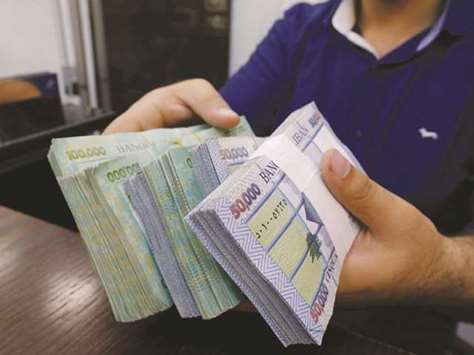A sell-off in Middle Eastern bond markets escalated yesterday, with debt prices in Saudi Arabia, Bahrain and Lebanon all hitting long-term lows following Saudi Arabia’s political purge and government turmoil in Lebanon.
Some of Saudi Arabia’s and Bahrain’s dollar-denominated bonds fell to their lowest since January, while a number of Lebanon’s slumped to their lowest since being issued as the turbulence spread.
This came as sources told Reuters that Saudi authorities had made further arrests in a sweeping purge of the kingdom’s political and business elite by its Crown Prince Mohammed bin Salman.
In the space of two years, the new Saudi leadership has sacked two crown princes, embarked on a military campaign in Yemen, blockaded fellow Gulf country Qatar, and rolled back some of its onerous social restrictions.
But 16 months ago, the kingdom also presented an ambitious reform plan to diversify its economy away from oil.
A Saudi $6.5bn dollar bond maturing in 2046 fell a cent to the lowest since March at 97.493 cents, while the $4.5bn 2047 bond was down more than one cent to a one-month low..
Shorter-dated issues maturing 2023 and 2026 fell by around 0.3-0.4 cent too, according to Thomson Reuters data.
“It is just all the uncertainty,” Aberdeen Standard Investment’s Kevin Daly said. “We don’t have visibility whether that is Saudi policy or...who is going to be the next prime minister in Lebanon.”
Lebanon has been thrust to the centre of regional rivalry between Saudi Arabia and Iran since the Saudi-allied Lebanese politician Saad al-Hariri quit as prime minister on Saturday, blaming Iran and Hezbollah in his resignation speech.
Lebanon’s June 2020 bond dropped 2.6 cents to 95.3 cents in the dollar, the lowest since the bond was issued in June 2013 according to Reuters data.
Its April 2020 issue also fell to its lowest ever level as it dropped 2.4 cents to 94.9 cents in the dollar.
Bahrain’s bonds were caught in the cross currents too and the cost of insuring exposure and against a default in all of the countries involved was on the rise.
The cost of insuring exposure to to Lebanese and Saudi Arabian debt hit the highest since late 2008 and July this year, respectively.
Lebanon, which has been thrown back into political limbo by the resignation of al-Hariri, saw its five-year credit default swaps (CDS) jump 13 basis points (bps) from Tuesday’s close to 592 bps.
Rating agency Moody’s warned on Tuesday that reopening Lebanon’s political vacuum would damage the tiny country’s credit rating.
Saudi Arabia’s five-year CDS meanwhile hit 100 basis points, its highest since late July.

A money exchange vendor displays Lebanese pound banknotes at his shop in Beirut yesterday. Lebanon has been thrust to the centre of regional rivalry between Saudi Arabia and Iran since the Saudi-allied Lebanese politician Saad al-Hariri quit as prime minister on Saturday.
